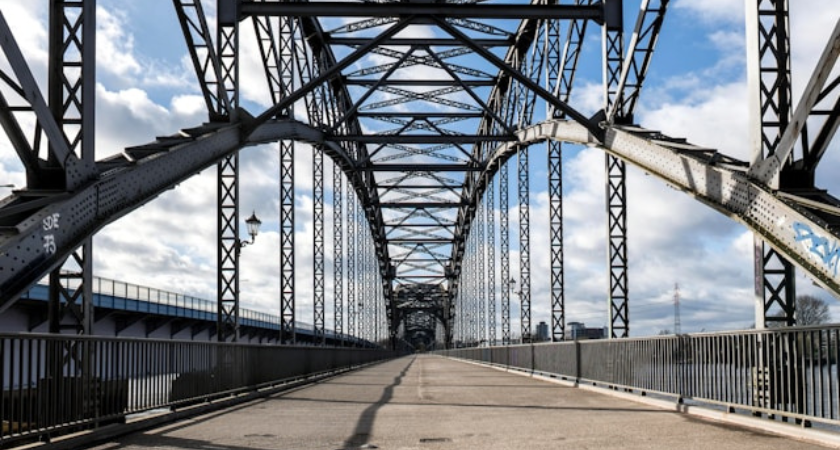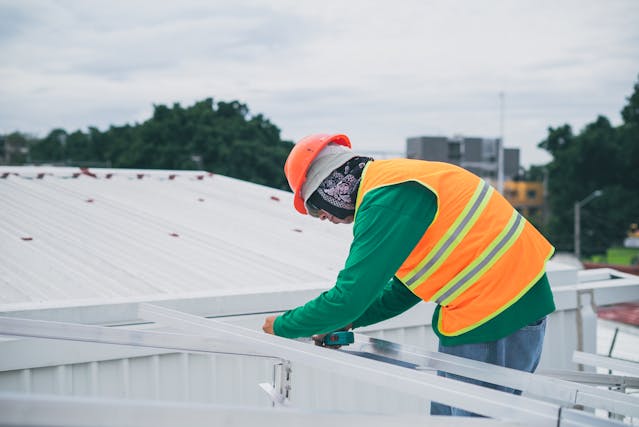
LANSING, Iowa — The Black Hawk Bridge, a vital link connecting Lansing, Iowa, and rural Wisconsin across the Mississippi River, has been closed indefinitely as demolition work begins on the nearly century-old structure. The move marks a major step forward in the construction of a long-awaited replacement bridge—but it also leaves thousands of daily commuters facing lengthy detours for the next two years.

The bridge officially closed at 7 a.m. Monday, as crews began preparing for dismantling and site work on the new Black Hawk Bridge, which is expected to open in 2027.
Project leaders say the decision to close the bridge now was made out of an abundance of caution, ensuring safety during heavy construction operations near the aging structure.
“We didn’t want the, you know, the catastrophic failure of the existing bridge would be terrible. So this is a concession we had to make to continue the construction of the new bridge,” said Clayton Burke, the Black Hawk Bridge project manager.
Burke emphasized that while the existing bridge—built in 1931—does not face immediate structural danger, ongoing heavy construction could destabilize it. The Iowa Department of Transportation (Iowa DOT) and Wisconsin DOT jointly determined that a full closure was the safest and most practical option.
The closure is the latest in a series of interruptions and safety concerns for the historic cantilever-style bridge. In February 2024, the bridge was closed for several months after crews discovered it had shifted slightly, raising fears about its stability. It was closed again in May 2025 when motion sensors detected additional movement, prompting emergency inspections and temporary reinforcement work.
Over 2,000 vehicles use the bridge daily, including commuters, freight trucks, and tourists traveling between northeast Iowa and western Wisconsin. Local businesses on both sides of the river have relied on this connection for generations, and many now fear the extended closure will hurt traffic and tourism.
With the bridge now closed, drivers must use alternate crossings more than 30 miles away, either at Marquette, Iowa, or La Crescent, Minnesota, to reach the other side of the Mississippi.

For daily commuters, the new route means adding over an hour to their round-trip travel time. Local officials say the situation will be particularly hard on residents who cross the bridge for work, school, or family visits.
To help alleviate disruptions, state transportation departments are planning to launch a free car ferry service next month, offering limited river crossings during the bridge’s demolition and replacement phase.
“I really feel for the local businesses and the travelers, commuters, those that have loved ones on each side of the river,” Burke said. “It’s going to be a tough year and a half, but hopefully it’ll go fast.”
The new Black Hawk Bridge—part of a $140 million joint project between Iowa and Wisconsin DOTs—will feature a modern design with wider lanes, shoulders, and improved safety features. The replacement aims to accommodate increasing traffic volumes and ensure year-round reliability in a region frequently challenged by weather and river flooding.
The new structure is being constructed immediately south of the existing bridge, allowing crews to begin foundational work and riverbed stabilization this fall. Once the new bridge opens, the old one will be fully dismantled and the site restored.
The Black Hawk Bridge, known for its distinctive steel truss design and narrow lanes, has long been a regional landmark and a symbol of local pride. Its closure, while temporary, represents both the end of an era and the beginning of a modernized Mississippi River crossing built to last another century.
As construction progresses, both states have pledged to keep the public informed through regular project updates, including ferry schedules, detour maps, and construction milestones.
Originally reported by Rebekah Vaughan in KCRG.